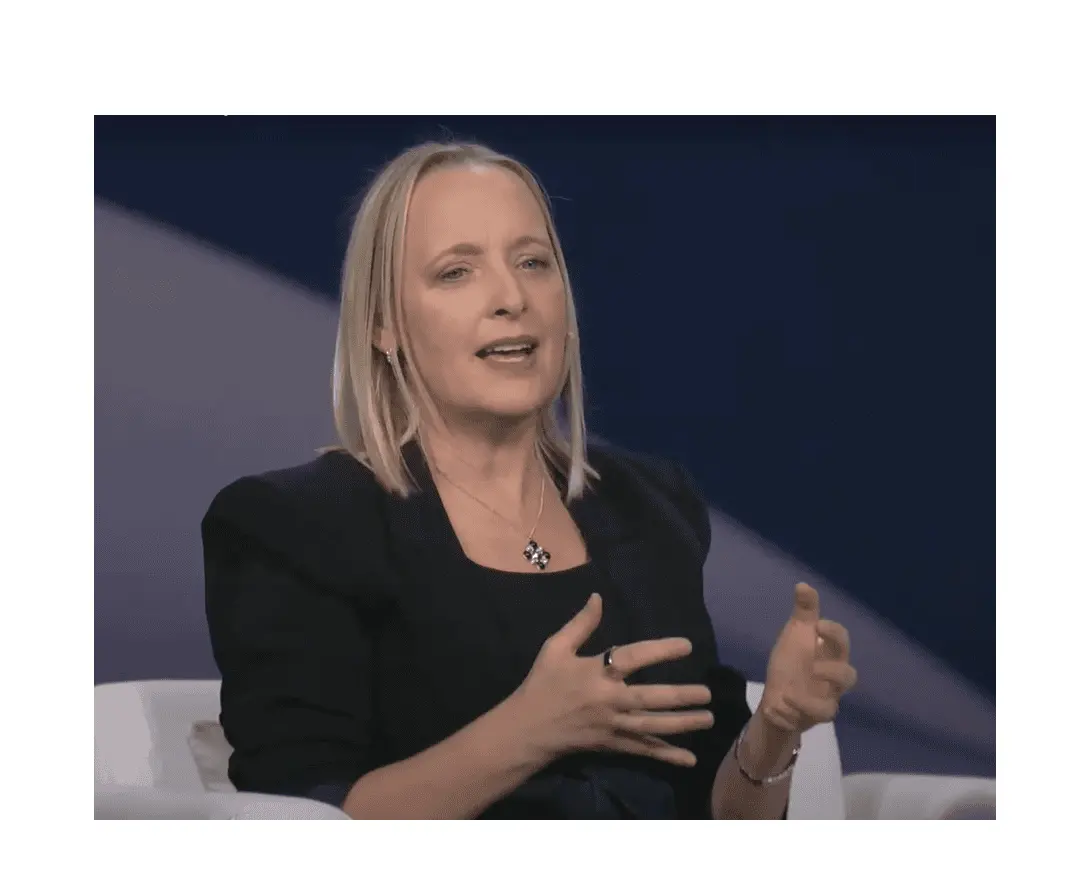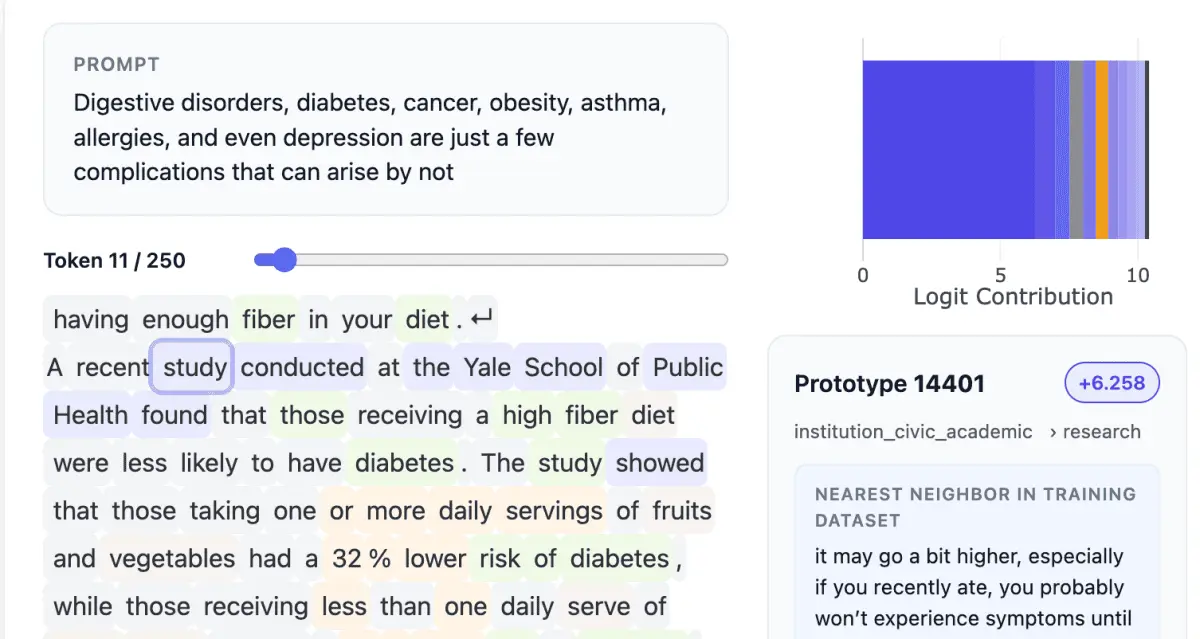Accenture Faces Federal Revenue Uncertainty Amid Trump Administration's Cost-Cutting, While AI Business Thrives
2 Sources
2 Sources
[1]
Elon Musk's chainsaw takes its toll on Accenture's prospects, but gen AI use cases continue to scale
Elon Musk's chainsaw-wielding antics are biting and causing revenue uncertainty, according to Accenture which became the first major Federal Government tech vendor to complain about the negative impact of his cost-cutting measures on behalf of Trump 2.0. While most other enterprise suppliers of late have suggested that the DOGE public sector efficiency drive is actually an opportunity for growth for their firms, Accenture, which saw eight percent of its 2024 revenue come from this market, voiced concern, stating: Many new procurement actions have slowed, which is negatively impacting our sales and revenue. CEO Julie Sweet did emphasise that she does see major opportunities "over time" for Accenture to help "modernize and re-invent the Federal Government to a whole new level of efficiency". But for now: The new administration has a clear goal to run the Federal Government more efficiently. During this process, many new procurement actions have slowed, which is negatively impacting our sales and revenue. In addition, recently, the General Service Administration (GSA) has instructed all Federal agencies to review their contracts with the top 10 highest paid consulting firms contracting with the US government, which includes Accenture Federal Services. The GSA's guidance would determinate contracts that are not deemed mission-critical by the relevant Federal agencies. While we continue to believe our work for Federal clients is mission critical, we anticipate ongoing uncertainty as the government's priorities evolve and these assessments unfold. The declaration came as Accenture turned in Q2 FY25 numbers that saw quarterly revenue of $16.66 billion, up five percent on the year ago quarter, but new bookings, a key indicator of future earnings, fell three percent year-on-year to $20.91 billion. Net income was $1.822 billion. Other stats of note: On a positive note, the number of new clients committing to gen AI at scale is increasing, said Sweet: We are partnering with Telstra, Australia's leading telecommunications company, to create a new joint venture to accelerate its data and AI roadmap and fast track the business into a new era of AI-driven re-invention. Through the joint venture, we will work together to simplify and modernize their data systems and set up a comprehensive AI foundation to deploy advanced AI solutions across their organization. Value driving AI use cases have been identified across the business that are suitable for scaling and will enhance network resilience, deliver seamless connectivity, and better customer experience. Using our AI Refinery platform, we will reimagine business processes by implementing Agentic AI. Specialized AI tools will support their employees to work smarter and faster and teams to operate more efficiently and effectively. In addition, we will help evolve Telstra's Data and AI Academy, a company-wide up-skilling initiative leveraging our learning and development programs, helping to build data and AI fluency and feature critical skills across its workforce. Building on Telstra's globally leading responsible AI practices, the JV is designed to sustain and improve on this by identifying and mitigating AI risks while building trust and adoption as it scales AI across the organization. This partnership with Telstra illustrates to clients that there are creative ways to accelerate their own use of data and AI. Clients in Australia from banking, retail, and utilities are working with us to design their own innovative ways to jumpstart their re-invention with data and AI. She also cited an unnamed multi-national food processing company which is looking to gen AI to drive $0.5 billion worth of value to self-fund their re-invention: For example, the company is using gen AI to forecast inventory risks and generate next best action recommendation, saving them millions of dollars annually. If excess inventory on a product is selling slower than expected in a region, gen AI tools proactively prompt promotional sale or halt production before the inventory results in a margin loss. In another instance, an AI-based communication platform was deployed that eliminates up to five different language barriers between supervisors and frontline workers and plants, reducing costly errors from miscommunications and delays. With many households having at least one of their products, this company's commitment to ongoing transformation will position them to continue to build, design, and run a future-ready enterprise, re-think work, and drive innovation. And long-standing client Repsol was named as another exemplar of this kind of generative and agentic AI at scale: Over the past three years, we have built a secured cloud based digital core with a unified data foundation. Now we will use our AI Refinery platform to deploy customized AI agents across functions such as planning, forecasting, and customer service, making processes more dynamic and less complex. Employees will be able to work more efficiently and provide customers with accurate personalized products and services. For example, AI agents can analyze available data to offer timely and relevant bundled energy solutions, enhancing Repsol's position as an integrated provider. We will upscale employees in AI and digital technologies through an expanded training program to support adoption. We are also exploring digital twins and robotic solutions to enhance planned maintenance and other tasks in industrial and logistics centers. Repsol is positioning itself as an early adopter of AI in the energy sector, increasing efficiency, boosting productivity, and promoting new ways of working to better serve customers. Despite all these success stories, Sweet was quick to add a note of pragmatic expectation management: Our strategy is to lead in both helping our clients using gen AI, but also to lead in our own use of gen AI. At the same time, it is still early in the technology. It's still expensive, so you have to get to the right ROI, in terms of when to use it. It requires our clients to have foundations in place. This isn't just sort of push a button and we can have gen AI. So, we should remember that this is still a very early in the technology cycle. That said, she concluded: There's an increasing number of clients embracing [gen AI] as companies are seeing it and there is no view that you can sit back, right, and wait on this. That, two years in, is very evident in our conversations with clients. Accenture may be the first to flag up the Musk effect, but it won't be the last. Welcome to the new Federal reality.
[2]
Accenture CEO: 'Ongoing Uncertainty' From Trump Cost-Cutting Plans
'As you know, the new administration has a clear goal to run the federal government more efficiently. During this process, many new procurement actions have slowed, which is negatively impacting our sales and revenue,' says Accenture Chair and CEO Julie Sweet. Accenture stock fell 7 percent Thursday after CEO Julie Sweet warned that the consulting giant would take a revenue hit as a result of the Trump administration's focus on trimming costs while also mentioning potential opportunities from the shifts in policy priorities. While Sweet said in her prepared remarks at the company's second fiscal quarter 2025 earnings call on Thursday that Accenture was very pleased with the quarter's results as Accenture continues to deliver on its strategy to return to strong growth in fiscal year 2025, she said that growth has been affected in a couple of areas with changes being put in place by the current administration. She did not mention President Trump or Elon Musk-led DOGE, the Department of Government Efficiency, by name. [Related: Top Distribution Execs Are Grappling With Financial Impact Of Tariffs] The first is at Accenture Federal Services, which accounted for about 8 percent of Accenture's global revenue and 16 percent of its Americas revenue in fiscal 2024. "As you know, the new administration has a clear goal to run the federal government more efficiently," she said. "During this process, many new procurement actions have slowed, which is negatively impacting our sales and revenue. In addition, recently, the General Service Administration has instructed all federal agencies to review their contracts with the top 10 highest paid consulting firms contracting with the U.S. government, which includes Accenture Federal Services. The GSA's guidance would try to terminate contracts that are not deemed mission-critical by the relevant federal agencies. While we continue to believe our work for federal clients is mission-critical, we anticipate ongoing uncertainty as the government's priorities evolve and these assessments unfold." That said, changes in the federal government also present potential opportunities, Sweet said. "Based on our significant experience across federal and commercial clients, we see major opportunities over time for us to help consolidate, modernize, and reinvent the federal government, to drive a whole new level of efficiency," she said. The Wall Street Journal, citing a person familiar with the matter, reported that the General Services Administration has nixed about 1,700 consulting contracts across various federal agencies since Trump was inaugurated. The second impact from changes in Washington, D.C., is an elevated level of what was already significant uncertainty in the global economic and geopolitical environment, Sweet said. "[This marks] a shift from our first quarter FY 25 earnings report in December," she said. "At the same time, we believe the fundamentals of our industry remain strong, and we are very well-positioned with our clients because all strategies continue to lead to reinventions or new ways of working tech, data, and AI. We are confident in executing our strategy to help clients reinvent." When asked by an analyst during the question-and-answer portion of the conference call about Accenture's second fiscal quarter federal business growth rate and expectations for the second half of the year, Sweet said that Accenture does not give that kind of guidance other than at the end of the fiscal year. Accenture is pleased with its second fiscal quarter performance and that it was able to update its guidance for the full year, she said. "[We're] pleased with how our business is sufficient with the larger deals coming online, which was a very deliberate part of our strategy," she said. "And then, as you think about Q3 and the full year, it includes our current estimates and assumptions of the potential impact of Federal and the overall environment." When asked about potential risks to Accenture's federal revenue, Sweet declined to be any more specific. "What I would say is, what we've been clear about is the guidance range we're giving for the quarter and for the year reflects our best view of the impact that's coming from both the slowing of new procurement actions and the assessments of the work that we're doing. And so we don't get into different pieces of it." Sweet, responding to an analyst question about a possible slowdown in spending, said that the company has not seen a slowdown in the last few weeks. "What we commented on, which I think everyone's well aware of, is in the last few weeks there's been an elevated level of what was already significant uncertainty," she said. "And there's a couple of big themes around that. Obviously, tariffs, and that's a global discussion. That is not just an Americas discussion. And also consumer sentiment, which is a little bit more of an Americas discussion. And so we're really just commenting on what I think we're all seeing, and that's only been in the last few weeks. And we're already in the heart of the discussions of clients globally who are talking about it. And you're seeing, for example, in Europe, there was an announcement of, like, major spending, you know, in areas like defense, where we've been investing, and are well positioned." Accenture's AI Business Continues To Bloom Aside from the impact of changes in the federal business, Sweet used her prepared remarks to discuss Accenture's advances in the AI business. "We had another milestone quarter in GenAI, with $1.4 billion in new bookings and approximately $600 million in revenue. ... We continue to invest significantly in our business to drive additional growth in highly strategic areas with over $250 million deployed primarily across six strategic acquisitions, and we invested in our people with approximately 15 million training hours this quarter, designed to help us bring the latest in solutions and technology to our clients, provide our people with marketable skills and reinvent our services using Gen AI," she said. "We increased our data and AI workforce to approximately 72,000 [employees], continuing progress against our goal of 80,000 by the end of FY 2026." Accenture's clients continue to be focused on reinvention, and GenAI is a catalyst for reinvention, Sweeny said. "They're focused on building the digital core with more AI being built in, which is driving our growth, and on areas such as the customer and core operations, including supply chain and Industry X," she said. "For our clients, the twin themes of achieving both cost efficiency and growth continue. The number of clients embracing GenAI is increasing significantly, and we are starting to see some tangible examples of scale in data and AI." Accenture By The Numbers For its second fiscal quarter 2025, which ended February 28, Accenture reported total revenue of $16.66 billion, an increase of 5 percent over its second fiscal quarter 2024 revenue. That revenue was almost divided evenly between the company's two major businesses, with consulting revenue of $8.28 billion, up 3 percent, and managed services revenue of $8.38 billion, up 8 percent. By industry group, Accenture reported communications, media, and technology revenue of $2.73 billion, up 3 percent; financial services revenue of $3.01 billion, up 7 percent; health and public service revenue of $3.61 billion, up 8 percent; produces revenue of $5.05 billion, up 6 percent; and resources revenue of $2.26 billion, up 1 percent. Americas revenue rose 9 percent year-over-year to $8.55 billion. Accenture also reported GenAI new bookings of $1.4 billion. The company also reported GAAP net income of $1.82 billion or $2.82 per share, up from last year's $1.71 billion or $2.63 per share. Looking Ahead Looking ahead, Accenture expects revenue for its fiscal third quarter 2025 to be in the range of $16.9 billion to $17.5 billion. For full fiscal 2025, Accenture expects revenue growth in the range of 5 percent to 7 percent. The company also expects full year earnings to be in the range of $12.55 to $12.79 per share, or 5 percent to 7 percent growth over adjusted fiscal 2024. Accenture also expects to invest about $2 billion to $3 billion in acquisitions in all of fiscal year 2025.
Share
Share
Copy Link
Accenture reports challenges in its federal business due to the Trump administration's efficiency drive, while simultaneously experiencing growth in its AI sector. The company navigates political uncertainties while expanding its AI partnerships and use cases.

Accenture's Federal Business Faces Uncertainty
Accenture, a major technology and consulting firm, is experiencing revenue uncertainty in its federal business sector due to the Trump administration's cost-cutting initiatives. CEO Julie Sweet reported that the new administration's goal to run the federal government more efficiently has led to a slowdown in new procurement actions, negatively impacting sales and revenue
1
2
.The General Services Administration (GSA) has instructed federal agencies to review contracts with top consulting firms, including Accenture Federal Services. This review aims to terminate contracts not deemed mission-critical, causing ongoing uncertainty for Accenture as government priorities evolve
1
.Financial Performance and Market Response
Despite these challenges, Accenture reported Q2 FY25 revenue of $16.billion, a 5% increase year-over-year. However, new bookings, a key indicator of future earnings, fell 3% to $20.billion
1
. The company's stock fell 7% following the earnings call and CEO's warnings about potential revenue impacts2
.AI Business Growth and Partnerships
In contrast to the federal sector challenges, Accenture's AI business continues to flourish:
- The company reported $1.billion in new AI bookings and approximately $600 million in revenue for the quarter
2
. - Accenture is partnering with Telstra, Australia's leading telecommunications company, to create a joint venture accelerating Telstra's data and AI roadmap
1
. - The partnership with Telstra includes implementing Agentic AI, evolving Telstra's Data and AI Academy, and scaling AI across the organization
1
.
Related Stories
Notable AI Use Cases
Accenture highlighted several significant AI implementations:
- A multinational food processing company is using generative AI to forecast inventory risks and generate recommendations, potentially saving millions of dollars annually
1
. - An AI-based communication platform was deployed to eliminate language barriers between supervisors and frontline workers, reducing costly errors
1
. - Repsol, a long-standing client, is leveraging Accenture's AI Refinery platform to deploy customized AI agents across various functions, enhancing efficiency and customer service
1
.
Future Outlook and Opportunities
Despite current challenges, Accenture sees potential opportunities arising from changes in the federal government. Sweet expressed confidence in the company's ability to help "consolidate, modernize, and reinvent the federal government, to drive a whole new level of efficiency"
2
.The company maintains that the fundamentals of their industry remain strong, with a focus on helping clients reinvent their operations through technology, data, and AI
2
. Accenture's strategy appears to be balancing the uncertainties in the federal sector with the growing opportunities in AI and digital transformation across various industries.References
Summarized by
Navi
[1]
Related Stories
Accenture's $3B AI Bet Pays Off: CEO Julie Sweet Reveals Insights on Enterprise AI Adoption
26 Sept 2025•Business and Economy

Accenture's Q1 FY25 Earnings Reveal Strong Growth in Generative AI, Boosting Tech Industry Outlook
20 Dec 2024•Business and Economy

Accenture Unveils AI-Focused Revamp Amid Bookings Decline and Strong Revenue
20 Jun 2025•Business and Economy

Recent Highlights
1
Google Gemini 3.1 Pro doubles reasoning score, beats rivals in key AI benchmarks
Technology

2
Pentagon Summons Anthropic CEO as $200M Contract Faces Supply Chain Risk Over AI Restrictions
Policy and Regulation

3
Canada Summons OpenAI Executives After ChatGPT User Became Mass Shooting Suspect
Policy and Regulation





